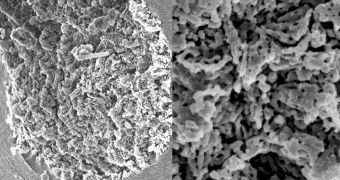It's easy to be overwhelmed by all the technology we now possess, superfast computers linked to a global network can be found in most people's pockets for example. Yet, for all of our achievements, a lot of scientific discoveries are still made by mistake.
Not just by mistake in the sense of trying anything you can come up with and seeing what works, but by actual mistake, like leaving an experiment running for several days longer than intended.
Researchers in Uppsala, Sweden have managed to create a new previously thought impossible material with extraordinary water absorbing materials when they forgot to shut down an experiment over the weekend.
What they discovered when they came back was quite interesting. They were using a century-old method to create dry MgCO3 by combining magnesium oxide (MgO) and carbon dioxide (CO2) dissolved in methanol.
When the mixture is heated up to over 100°C, a crystalline form of MgCO3 is created. But researchers have, for a long time, searched for ways of recreating the process at a lower temperature.
The researchers in Sweden were experimenting with using CO2 at three times the pressure normally used. But the breakthrough only the experiment was left running over a weekend. When the researchers returned they found a gel instead of the crystalline structure since the methanol had permeated the mixture.
When this gel was heated up to 70°C, the methanol boiled away leaving a coarse powder, which the researchers dubbed Upsalite. This powder doesn't have a crystalline structure, but it is mesoporous, meaning it has very, very fine pores, a million times thinner than a human hair, throughout its volume, just big enough for atoms and molecules to fit in.
Because there are so many pores, the material can absorb huge amounts of water. There are many applications for this, from medicine to engineering to keeping your packages dry, particularly since the substance is rather cheap to make.

 14 DAY TRIAL //
14 DAY TRIAL //